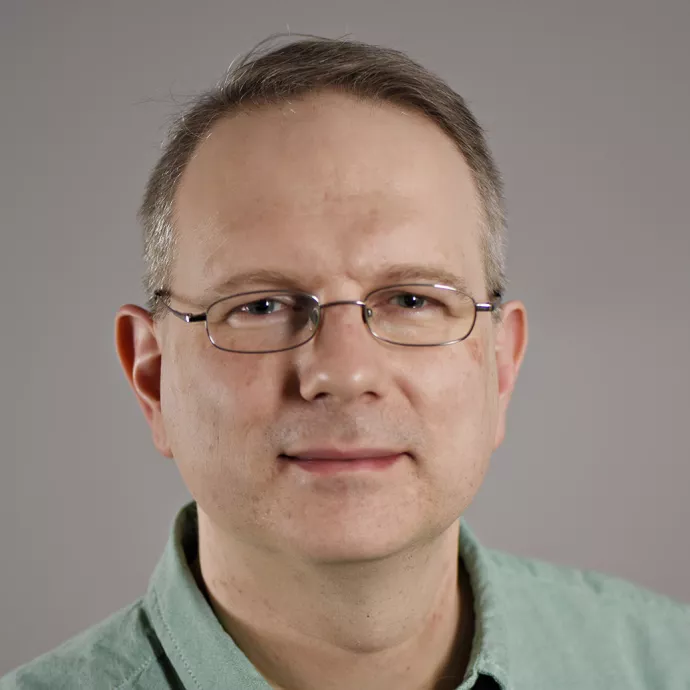
Connaught Committee awards quarter-million dollars to UTM researcher
University of Toronto Mississauga researcher David McMillen was named a recipient of the 2019/2020 Connaught Global Challenge Award. The $245,400 prize will support McMillen’s two-year project Innovating for the Global South: Accelerating the impact of synthetic biology on health.
Established in 2011, the Connaught Global Challenge Award supports interdisciplinary approaches to make possible the transfer of new knowledge and the application of solutions to problems of global significance.
McMillen, an associate professor in the Department of Chemical & Physical Sciences at U of T Mississauga, conducts research in synthetic biology.
Deploying disease detectors
“Synthetic biology involves engineering cells to do things differently than they do natively,” says McMillen. For example, McMillen’s research group has used synthetic biology to create a type of yeast that can sense antibodies in a blood sample. As a result, the yeast can act as a disease detector. The group has successfully used the yeast in the lab to screen for Dengue fever and Chagas’ disease. Their next target is malaria.
Although the actual deployment cost would be higher, McMillen says that “this disease detector can also be used for diagnosis or disease surveillance for very low cost at least in terms of the raw materials."
The challenge McMillen wants to solve is the deployment of health interventions such as the disease detector that are simple and efficient, low cost and effective. The project’s target regions include the Philippines, India and Indigenous communities in northern British Columbia.
International interdisciplinary investigators
McMillen and a team of Canadian and international collaborators with expertise in science, public health and public policy, social science and engineering, and local community partners will spend the next two years identifying, among other things, needs.
“One of the main things we want to do is ask people from various target regions what they want and what their problems are. Then we want to work together to find matches between those needs and the solutions synthetic biology can generate. The idea is to direct our research based on input from the end user, rather than having us decide on a direction and then later trying to figure out what would be most useful,” says McMillen.
The team will look for barriers to delivery and implementation.
McMillen says that one of the barriers is cost. In a global context, tests are either free because they have been donated or, if they haven’t been donated, are prohibitively expensive. Other barriers include reliable electricity or refrigeration, which may not exist in low-resource settings, and a lack of technical expertise to administer tests. “Synthetic biology offers things that are a little more robust. Tests can be dried out and stored at room temperature. An end-user won’t necessarily need years of technical training.”
The team will also generate a list of potential applications for synthetic biology in diagnostics and therapeutics, agri-food, including nutrition and livestock, and in pollution detection and remediation.
“There are all kinds of potential ways synthetic biology can be used,” he says. “We just need to focus in on which directions we should be exploring.”
An unusual opportunity
As a scientist, many grants McMillen works with are about pure research. He calls the Connaught Global Challenge Award an unusual opportunity to focus first on identifying what the problems are, how to create the solutions, and how to deliver them. He says the award will be ultimately in the service of research, but that it will establish the multiple directions he and his collaborators can follow as a group.
“This is about developing a plan and an approach. By the end of the project, what we want is a set of goals to pursue that we’ve identified in collaboration with local experts from the target regions,” he says.
McMillen, who was born in Thailand, says he has been connected to Southeast Asia his whole life.
“I’ve been there many times and it has given me a visceral sense of how unequally distributed the world’s resources are. There are people who have levels of daily struggle that we never see here. It just made me feel strongly that if there are things I can do, I want to do them.”
